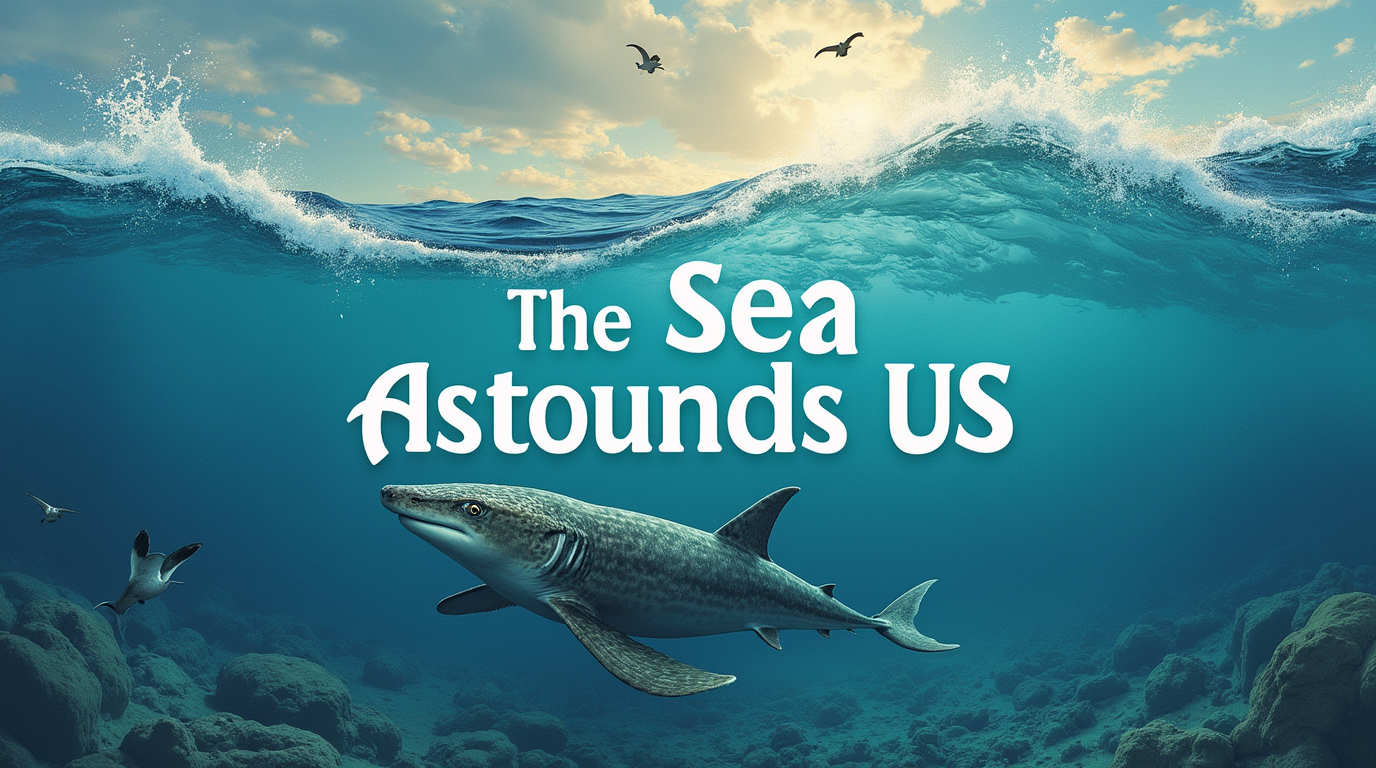Table of Contents Show
There may be products. Products are independently selected by our editors. We may earn an affiliate commission from the links with no charge to you, example: as Amazon Affiliate.
We’ve found five transformative science books that’ll reshape how you see reality: “Do You QuantumThink?” bridges quantum physics with practical wisdom, while “101 Essays” offers bite-sized revelations about the mind. “Brainworks” reveals the secrets of perception, “Think and Eat Yourself Smart” connects nutrition to consciousness, and “Think, Learn, Succeed” unblocks your brain’s hidden potential. These mind-bending works promise to challenge everything you thought you knew about existence and consciousness.
Key Takeaways
- “Do You QuantumThink?” connects quantum physics with daily life, offering practical exercises to reshape how we perceive reality.
- “101 Essays That Will Change the Way You Think” provides bite-sized wisdom for transforming mindset and challenging existing beliefs.
- “Brainworks” reveals how our brain processes reality through interactive experiments, challenging assumptions about perception and consciousness.
- “Think, Learn, Succeed” revolutionizes understanding of cognitive development through accessible neuroscience and practical learning strategies.
- Books bridging multiple disciplines, like psychology and quantum physics, create profound shifts in understanding complex phenomena.
Do You QuantumThink?: New Thinking That Will Rock Your World
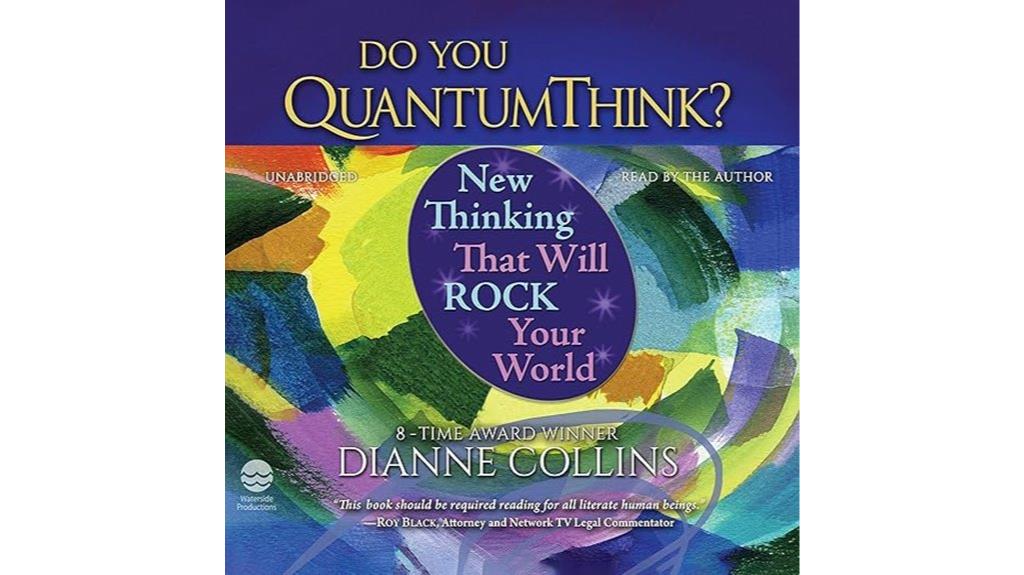
Curious about bridging the gap between quantum physics and ancient wisdom? “Do You QuantumThink?” by Dianne Collins offers a fresh perspective on consciousness and reality, making it ideal for readers seeking to transform their worldview.
We’re particularly impressed by Collins’ ability to translate complex quantum concepts into practical applications. Through “recreations” exercises, we can enhance our communication and problem-solving skills, leading to what she calls “quantum occurrences” – unexpected positive outcomes. The book draws from multiple spiritual traditions while grounding itself in modern physics, suggesting that our consciousness directly shapes our reality. It’s a powerful guide that challenges conventional thinking and provides tools for personal transformation.
Best For: Individuals interested in personal development who want to understand how quantum physics principles can be applied to daily life and consciousness.
Pros:
- Effectively translates complex quantum concepts into practical, actionable exercises
- Combines insights from multiple spiritual traditions with modern physics
- Provides specific techniques and “recreations” for improving communication and problem-solving
Cons:
- May be too abstract or metaphysical for readers seeking concrete, traditional self-help advice
- Some concepts might be challenging for readers without basic physics knowledge
- The blend of quantum physics and spirituality might not appeal to strict rationalists
101 Essays That Will Change the Way You Think
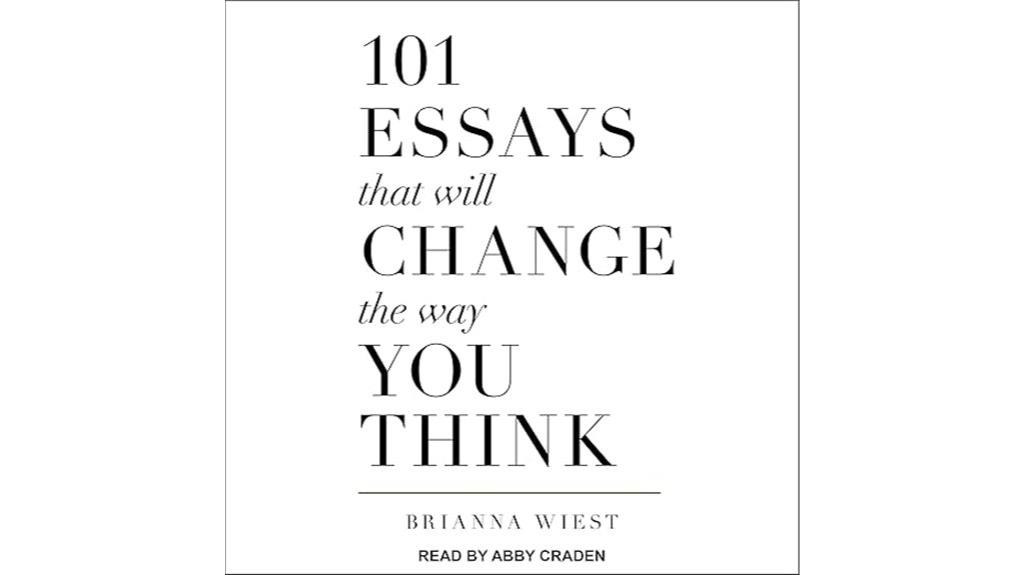
Looking to transform your mindset through powerful insights? We’re excited to share “101 Essays That Will Change the Way You Think,” a collection that’s revolutionizing how readers approach life’s challenges. Through concise, wisdom-packed essays, you’ll explore fresh perspectives on anxiety, self-esteem, and personal growth.
What sets this book apart is its flexible format – you can digest a few essays at a time and return later for more inspiration. While some readers note minor editing issues, the profound impact of these transformative messages shines through. Whether you prefer the audiobook’s soothing narration or the written text, we’ve found this to be an invaluable resource for anyone seeking meaningful change.
Best For: Readers seeking personal growth and mindset shifts who prefer digestible, thought-provoking content they can engage with at their own pace.
Pros:
- Flexible format allows readers to consume content in small, manageable portions
- Provides deep insights on various life topics including anxiety, self-esteem, and personal development
- High re-readability value with content that remains relevant over multiple revisits
Cons:
- Contains noticeable editing and textual errors throughout the book
- Related workbook is out of print and reportedly ineffective
- Some readers might find the short-essay format lacks the depth of traditional self-help books
Brainworks: The Science of How You See, Think, and Are
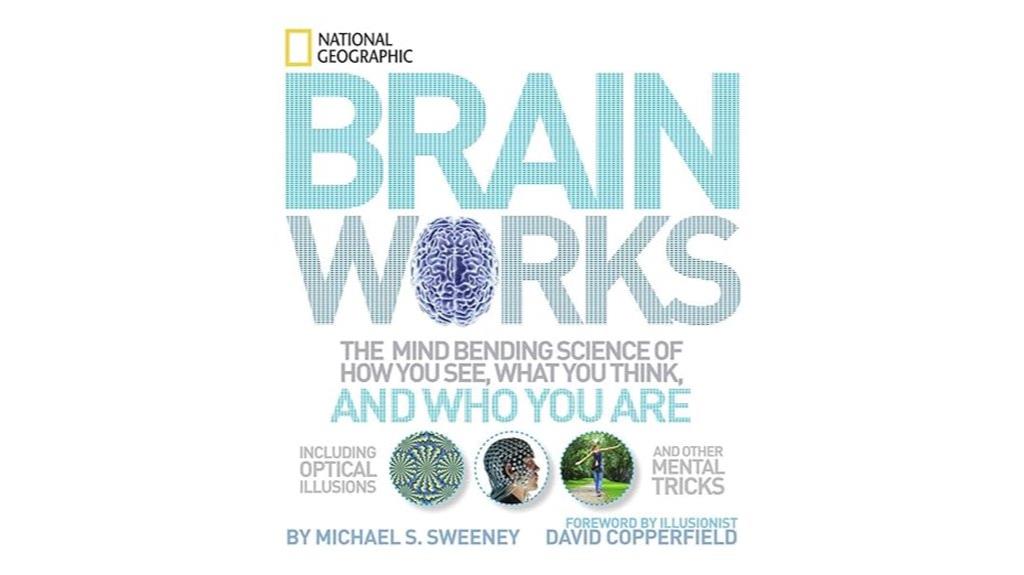
Science enthusiasts seeking an accessible entry into neuroscience will find their perfect match in “Brainworks: The Mind-bending Science of How You See, What You Think, and Who You Are” by Michael S. Sweeney. Through interactive experiments and illusions, we’re guided through the fascinating world of our minds across four engaging sections.
We’ll discover how our brains interpret faces and colors, explore the nature of false memories, and unravel the mysteries of pain perception and emotional responses. While it won’t revolutionize an expert’s understanding, it’s an ideal introduction for curious minds and students. Sweeney’s journalistic background shines through his ability to make complex concepts remarkably approachable.
Best For: High school and college students, science enthusiasts, and general readers seeking an engaging introduction to neuroscience and psychology without technical jargon.
Pros:
- Interactive experiments and illusions make complex concepts easy to understand
- Well-structured organization across four clear sections covering perception, thinking, and consciousness
- Engaging writing style that makes neuroscience accessible to readers without scientific background
Cons:
- May be too basic for readers with advanced knowledge in neuroscience
- Lacks detailed explanations of some sensory pathways and neurological processes
- Limited depth in technical aspects that could benefit readers wanting more comprehensive understanding
Think and Eat Yourself Smart: A Neuroscientific Guide to Better Mind and Health
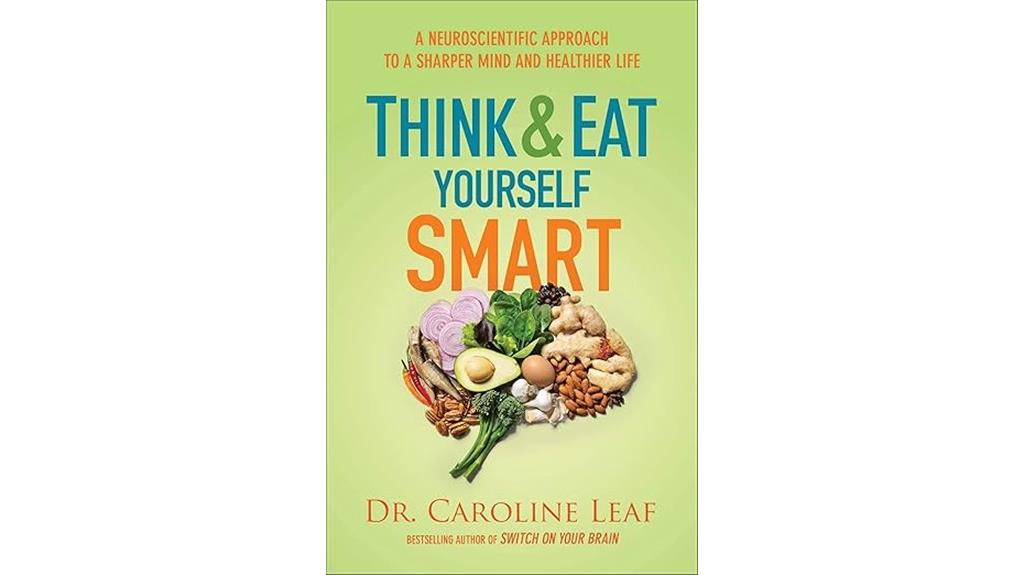
Readers seeking a bridge between neuroscience and nutrition will find profound insights in Dr. Caroline Leaf’s “Think and Eat Yourself Smart.” We’re particularly drawn to her rejection of one-size-fits-all diets in favor of personalized approaches that honor individual needs.
Let’s explore how this book transforms complex neurological concepts into practical wisdom. Beyond traditional dietary advice, it addresses the pressing challenges of accessing healthy food while encouraging local sourcing and gardening. While some may debate the book’s spiritual undertones, we can’t ignore its valuable contribution to understanding the mind-body connection and empowering us to make informed food choices.
Best For: Health-conscious individuals seeking a scientific understanding of nutrition while wanting to develop personalized eating habits based on their unique needs.
Pros:
- Translates complex neuroscience into accessible language about nutrition and health
- Promotes personalized approach to diet rather than one-size-fits-all solutions
- Provides practical guidance for sourcing better food options through local markets and gardening
Cons:
- Religious undertones may not appeal to readers seeking purely scientific content
- Limited solutions for those facing economic barriers to accessing healthy food
- Some readers might find the extensive information overwhelming or complex
Think, Learn, Succeed: Understanding Your Mind to Thrive
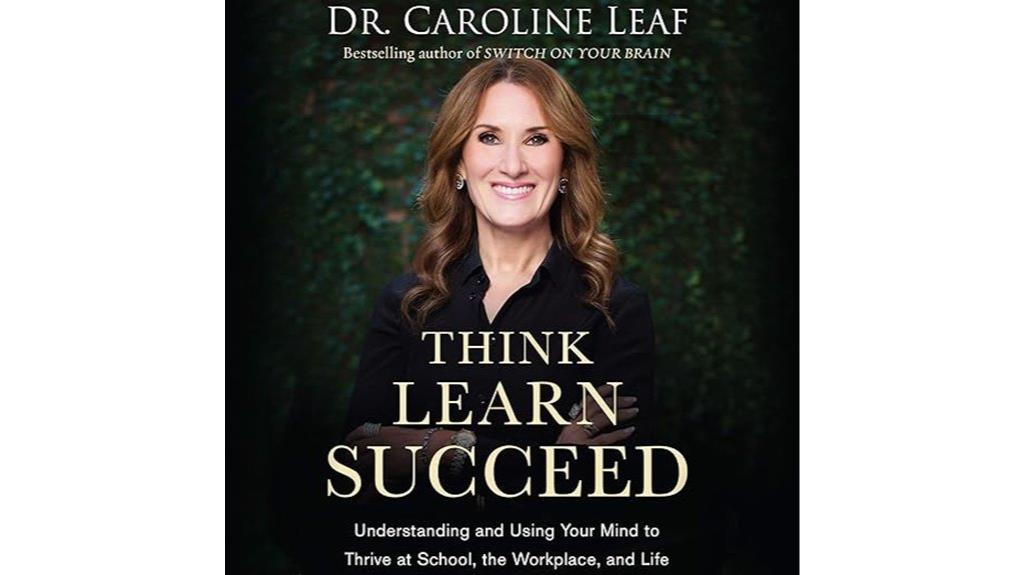
Dr. Caroline Leaf’s “Think, Learn, Succeed” transforms our understanding of brain function and cognitive development. We’re particularly drawn to her accessible approach to complex neuroscience, broken down into digestible chapters that won’t overwhelm readers.
Her reconceptualization of Gardner’s multiple intelligences theory into cognitive modules offers fresh insights, while practical tools like Metacog help us develop personalized learning strategies. The book’s emphasis on neuroplasticity and emotional intelligence challenges traditional views of how our brains work.
Whether you’re tackling intrusive thoughts or seeking to enhance your learning capacity, we’ve found this book delivers actionable steps toward cognitive improvement.
Best For: Individuals seeking to improve their cognitive abilities, manage intrusive thoughts, or better understand how their brain works through practical, science-based methods.
Pros:
- Clear, accessible writing style that breaks down complex neuroscience concepts
- Practical tools and strategies like Metacog for developing personalized learning approaches
- Combines scientific research with actionable steps for cognitive improvement
Cons:
- May be too basic for readers already well-versed in neuroscience
- Some concepts blend religious and scientific perspectives, which may not appeal to all readers
- Limited coverage of traditional academic learning techniques
Factors to Consider When Choosing Science Books That Challenge the Way You Think
When we’re looking for science books that challenge our thinking, we need to evaluate several key elements that determine their transformative potential. We’ll want to examine the author’s writing style and scientific credentials, while ensuring the content offers both theoretical depth and practical applications for personal development. Beyond individual factors, the most impactful science books often bridge multiple disciplines, creating connections that spark new ways of understanding our world and ourselves.
Writing Style and Clarity
The right writing style can transform complex scientific concepts into an engaging intellectual journey that challenges and expands our understanding. We’ll connect more deeply with books that present ideas clearly and concisely, breaking down intricate theories into digestible pieces.
When we’re exploring mind-bending science books, we should look for authors who excel at crafting engaging narratives filled with relatable examples and anecdotes. They’ll help us grasp complex principles more effectively. The best science writers make their work interactive, incorporating thought experiments and practical applications that encourage us to participate in the learning process. We’ll find ourselves drawn to books with shorter chapters or essay-style segments, as they give us natural pauses to reflect on and absorb these perspective-shifting ideas.
Scientific Depth and Accuracy
Selecting mind-bending science books requires careful attention to their scientific depth and accuracy. We must first verify the author’s credentials and expertise to guarantee they’re qualified to present complex scientific concepts. When evaluating potential reads, we should look for clear citations and references to peer-reviewed research, which demonstrate the author’s commitment to scientific rigor.
We need books that strike the right balance – they should be accessible without oversimplifying the science. Look for works that use clever analogies and real-world examples to illuminate complex ideas while maintaining accuracy. Let’s be wary of books that make sensational claims or present overly simplified explanations. The best mind-bending science books challenge our thinking while staying true to scientific principles and research.
Personal Growth Applications
Beyond scientific accuracy, mind-bending science books can serve as powerful catalysts for personal transformation. We recommend selecting books that combine practical exercises with theoretical concepts, allowing us to actively apply scientific insights to our daily lives. Look for works that explore the intersection of consciousness, behavior, and neuroplasticity, as they’ll help us understand how our thoughts shape our reality.
We’ll get the most value from books that draw from diverse fields like psychology, neuroscience, and behavioral economics. The best selections include real-world case studies and relatable stories that demonstrate how others have successfully implemented these concepts. When choosing your next read, prioritize books that encourage self-reflection and provide specific techniques for examining our thought patterns and habits. This combination of theory and practice creates the most impactful learning experience.
Author’s Expertise and Background
When evaluating mind-bending science books, an author’s expertise and background serve as essential indicators of the work’s reliability and depth. We should look for authors who hold advanced degrees in relevant fields like psychology, neuroscience, or related disciplines. Their academic qualifications help guarantee they understand the complex concepts they’re presenting.
We’ll want to reflect on the author’s practical experience too. Have they taught at universities, conducted research, or worked directly in their field? Let’s also check their publication history and professional achievements. Authors who’ve consistently contributed to their field often demonstrate a mastery that enriches their writing. Don’t forget to look for endorsements from respected institutions or fellow experts – these can validate the author’s authority and strengthen our confidence in their work.
Interdisciplinary Learning Value
The most thought-provoking science books often bridge multiple disciplines, creating a rich tapestry of interconnected ideas that challenge our existing mental models. When we explore works that blend psychology with quantum physics, or neuroscience with philosophy, we’re exposed to unique perspectives that expand our understanding of reality and consciousness.
We’ll find the greatest value in books that connect seemingly unrelated fields, offering fresh methodologies and frameworks for problem-solving. These interdisciplinary approaches help us develop cognitive flexibility and innovative thinking patterns. By engaging with texts that weave together different scientific disciplines with philosophical insights, we gain a more thorough view of complex phenomena. This cross-pollination of ideas doesn’t just broaden our knowledge—it transforms how we think about the nature of existence and our place within it.
Reader Knowledge Level Required
Selecting mind-bending science books requires careful consideration of your current knowledge level and learning goals. We recommend starting with titles that match your existing understanding while pushing you toward new insights. Look for books that bridge complex concepts with clear explanations and relatable examples.
When evaluating potential reads, we suggest checking if the book provides interactive elements or practical exercises that help reinforce learning. The writing style should feature concise chapters and accessible language, making it easier to absorb challenging ideas. We also encourage you to read reviews from both beginners and experts to ascertain the book’s difficulty level aligns with your needs. Remember, the best science books challenge your thinking while remaining comprehensible enough to maintain your engagement and understanding.
Conclusion
Let’s face it – we’re all desperately seeking mind-bending enlightenment through these science books, hoping they’ll magically transform us into intellectual giants. Yet here we are, still scrolling through listicles about transforming our worldview while our actual worldview stays stubbornly unchanged. Maybe the real transformation isn’t in reading about thinking differently, but in finally closing the book and actually doing it.






